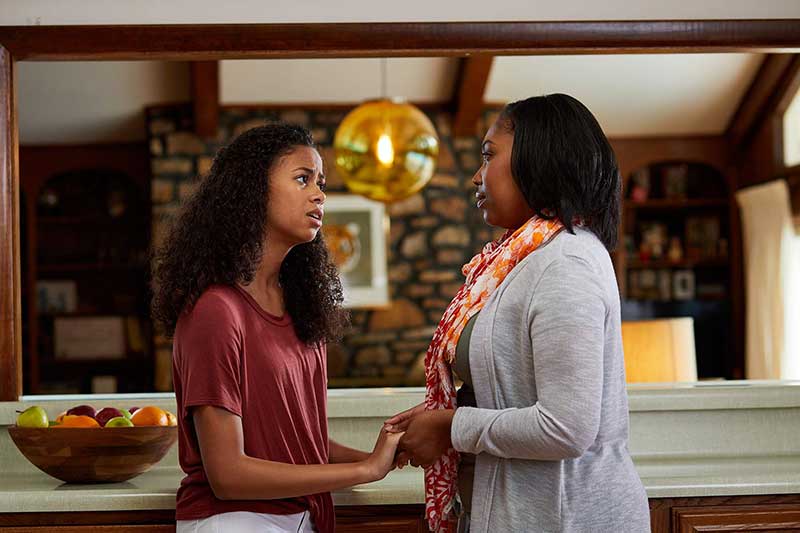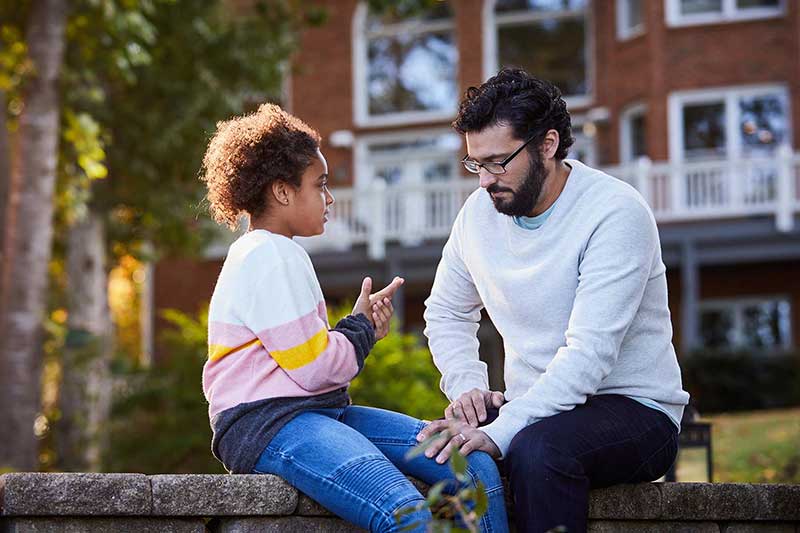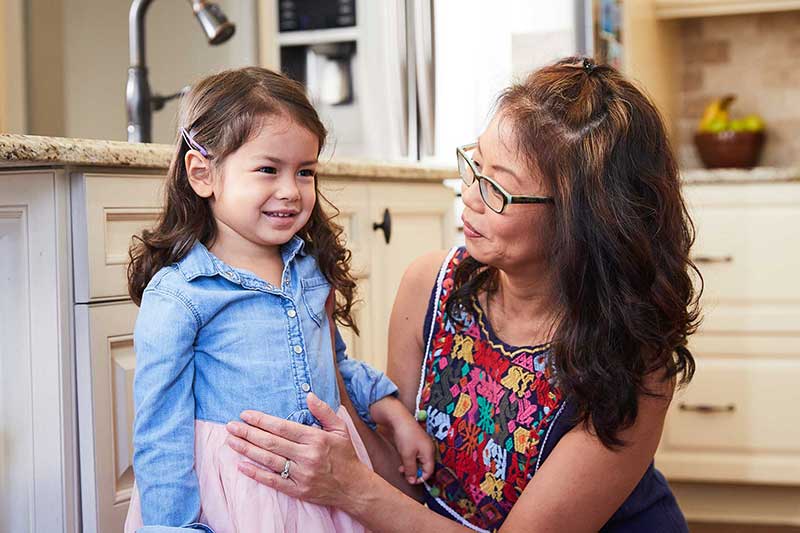How to Get Your Child to Confide in You
If getting your child to talk is like trying to solve a puzzle, you’re not alone. Maybe your second grader, who’s normally happy and energetic after school, comes home quiet and withdrawn. You learned that their friend is moving, but when you bring it up, your child just goes quietly to their room.
Maybe your normally chatty middle schooler keeps their eyes down during dinner and excuses themself immediately after eating. You follow them to the family room, but they ignore you.
Here are some tips on how to support, listen to and be there for your kids, even when it might seem almost impossible.
In this article:

Be open to the way your child expresses emotions
No two children are alike. Some kids like to talk, while others are very reserved. The best thing you can do for your child is just be there, ready to listen.
It’s helpful to remember that not all children are able to easily find words for their feelings. Some draw pictures. Some act out physically. Some play music. Some journal. Be alert to what your child is telling you, even when they aren't actually speaking.
Also, your child may not even be aware of what they're feeling. Music, books and TV shows can help a child learn about emotions. Watch movies and read books with your child, and talk about the characters’ feelings. Allow your child to identify those emotions and attach words to them. But always allow your child to express their feelings in a way that is comfortable for them, even without words.
Download a list of coping skills.
Download a journaling tip sheet.

Create space for your child to talk, and be available
One of the most important things you can do to open a line of communication with your child is to be there for them. That means being there physically, but it also means being there emotionally—being able to listen without distractions.
Even if your child isn’t talking, you can still be there for them. Licensed therapist Kathleen Hill, LPC, says some kids simply “aren’t big talkers.” For quieter kids, try to create a safe space for them by saying something like, ‘You seem sad and down. I’m here for you.’” Follow their lead. Be patient.
You can also create a safe space by sharing a personal, related story from your own experience. Letting your child know something similar has happened to you may help you connect, and they may feel more comfortable opening up.
Of course there are times when you can’t drop what you’re doing to talk to your kids. It’s just a reality of life. If you just walked in the door, Hill suggests saying something like, “I appreciate that you want to talk to me, but I just got home. Can you give me 10 minutes to unwind a bit so I can give you my full attention?” Just be sure to get back to the conversation when the time is better for you.
To minimize having to postpone talks, licensed therapist with Strong4Life Erin Harlow-Parker, APRN, also suggests, “Try to weave check-ins into the day or right after school.” And, if necessary, set up a good time to talk when you, and your child, can be distraction-free. And then, when your child is ready to talk, put down your phone, close the laptop and listen.
-
Connecting With Your Kids

Manage your reaction
Not overreacting is much, much easier said than done. After all, you’re human, and you also have emotions. However, managing your reaction is very important. If your child tells you something upsetting or something that angers you, such as “I hate my teacher and my whole school,” an angry response from you about their words may make them less likely to talk to you about emotional issues in the future. If your initial reaction is calm, your child may feel more comfortable coming to you with their feelings.
Children’s Healthcare of Atlanta Strong4Life licensed therapist Jody Baumstein, LCSW, says, “Sometimes a very big reaction can scare a child into not wanting to talk to you, because they don’t want to disappoint you, worry you, or scare you. Try—and it is not always easy—to just listen and follow their lead.”
Of course, no parent is perfect. Baumstein says, “Mistakes happen. An accidental overreaction is actually a great opportunity to show your child that you can make a mistake and apologize for it.” If you do overreact, it’s not the end of the world. Learn from it and move on. By demonstrating vulnerability, you are actually being a great role model for your kids. You are showing them how to be responsible when they make mistakes.

Try not to fix things
It’s important to listen to what your child says without trying to fix, or take away from, the problem. Baumstein says, “Sometimes parents naturally try to repair the situation. When we do that, we send the message that ‘I know what’s best. I’m the adult, and you’re the child.’ And that can minimize the child’s feelings and fail to honor what the child wants.
“A child might say, ‘I just want to tell you about this, and I don’t want you to do anything.’ And then a parent might go to the school anyway. When something like that happens, the child probably won’t go to her parent again.” So just listen. Don’t judge. And don’t try to fix the problem.

Keep your child’s secrets
It may seem obvious that you should keep your child’s private comments to yourself, but chances are you will talk to other parents, teachers, etc. As much as you can, be respectful of your child’s wishes and privacy. Sharing secrets will lessen your child’s trust in you and may discourage them from sharing personal information with you in the future. This is also true with social media. It’s tempting to share funny pictures and stories, but would you want a picture of your first potty experience or first date online forever?
It is important, however, to let your child know that if there are safety concerns, you will need to intervene (or tell the school, another parent, etc.). Otherwise, if they ask you to stay out of it, try to honor their wishes and stay out of it.
Be patient
Getting your child to open up to and confide in you can be challenging. By being patient and creating a sense of presence, trust and acceptance, you are making it easier for your child to come to you when they are ready.





